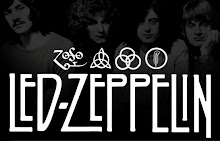Good writing depends upon more than making a collection of statements worthy of belief, because writing is intended to be read by others, with minds different from your own. Your reader does not make the same mental connections you make; he does not see the world exactly as you see it; he is already flooded daily with thousands of statements demanding assent, yet which he knows or believes to be false, confused, or deceptive. If your writing is to get through to him--or even to be read and considered at all--it must be interesting, clear, persuasive, and memorable, so that he will pay attention to, understand, believe, and remember the ideas it communicates. To fulfill these requirements successfully, your work must have an appropriate and clear thesis, sufficient arguments and reasons supporting the thesis, a logical and progressive arrangement, and, importantly, an effective style.
While style is probably best learned through wide reading, comprehensive analysis and thorough practice, much can be discovered about effective writing through the study of some of the common and traditional devices of style and arrangement. By learning, practicing, altering, and perfecting them, and by testing their effects and nuances for yourself, these devices will help you to express yourself better and also teach you to see the interrelatedness of form and meaning, and the psychology of syntax, metaphor, and diction both in your own writing and in the works of others.
The rhetorical devices presented here generally fall into three categories: those involving emphasis, association, clarification, and focus; those involving physical organization, transition, and disposition or arrangement; and those involving decoration and variety. Sometimes a given device or trope will fall mainly into a single category, as for example an expletive is used mostly for emphasis; but more often the effects of a particular device are multiple, and a single one may operate in all three categories. Parallelism, for instance, helps to order, clarify, emphasize, and beautify a thought. Occasionally a device has certain effects not readily identifiable or explainable, so I have not always been able to say why or when certain ones are good or should be used. My recommendation is to practice them all and develop that sense in yourself which will tell you when and how to use them.
1. Expletive is a single word or short phrase, usually interrupting normal syntax, used to lend emphasis to the words immediately proximate to the expletive. (We emphasize the words on each side of a pause or interruption in order to maintain continuity of the thought.) Compare:
· But the lake was not drained before April.
· But the lake was not, in fact, drained before April.
Expletives are most frequently placed near the beginning of a sentence, where important material has been placed:
· All truth is not, indeed, of equal importance; but if little violations are allowed, every violation will in time be thought little. --Samuel Johnson
2. Asyndeton consists of omitting conjunctions between words, phrases, or clauses. In a list of items, asyndeton gives the effect of unpremeditated multiplicity, of an extemporaneous rather than a labored account:
· On his return he received medals, honors, treasures, titles, fame.
The lack of the "and" conjunction gives the impression that the list is perhaps not complete. Compare:
· She likes pickles, olives, raisins, dates, pretzels.
· She likes pickles, olives, raisins, dates, and pretzels.
Sometimes an asyndetic list is useful for the strong and direct climactic effect it has, much more emphatic than if a final conjunction were used. Compare:
· They spent the day wondering, searching, thinking, understanding.
· They spent the day wondering, searching, thinking, and understanding.
In certain cases, the omission of a conjunction between short phrases gives the impression of synonymity to the phrases, or makes the latter phrase appear to be an afterthought or even a substitute for the former. Compare:
· He was a winner, a hero.
· He was a winner and a hero.
Saturday, December 13, 2008
Subscribe to:
Post Comments (Atom)

No comments:
Post a Comment